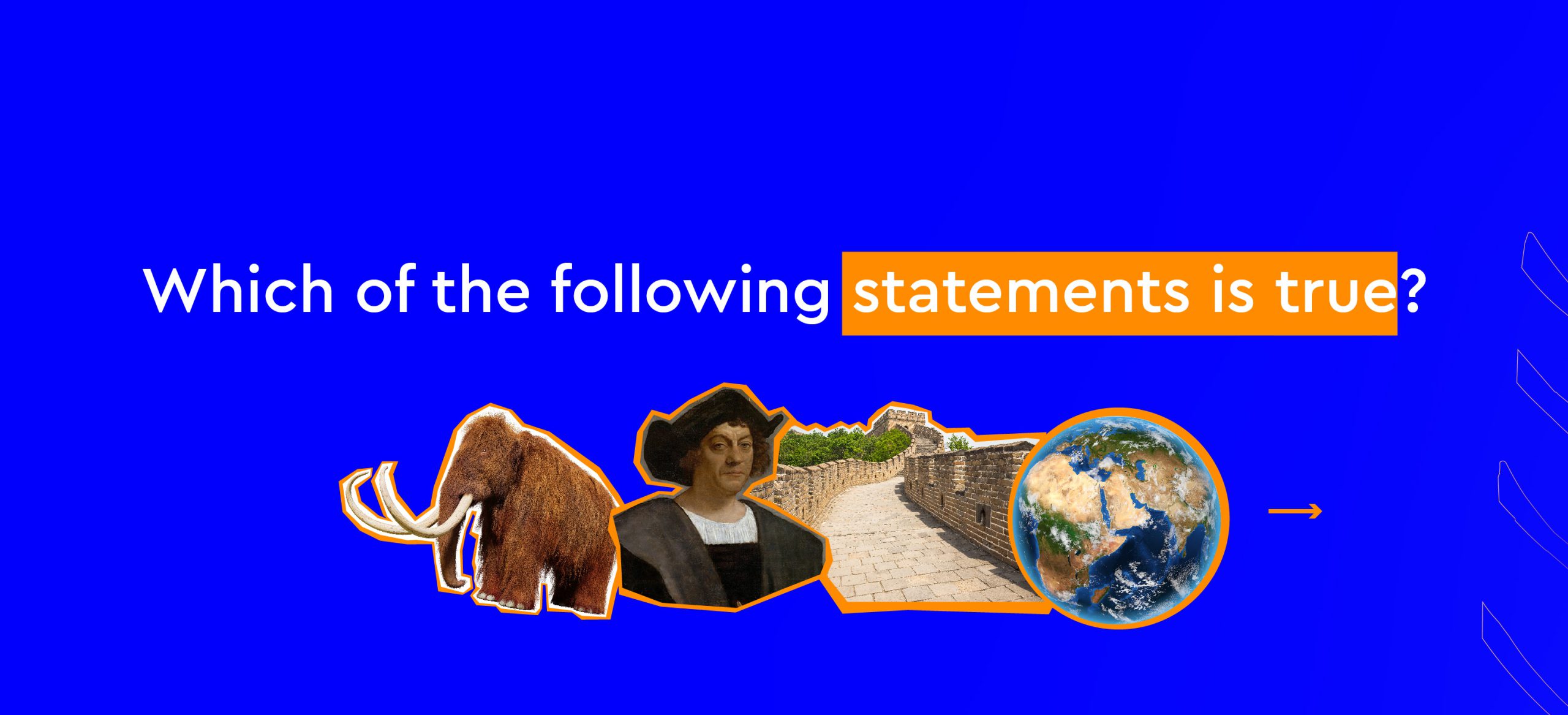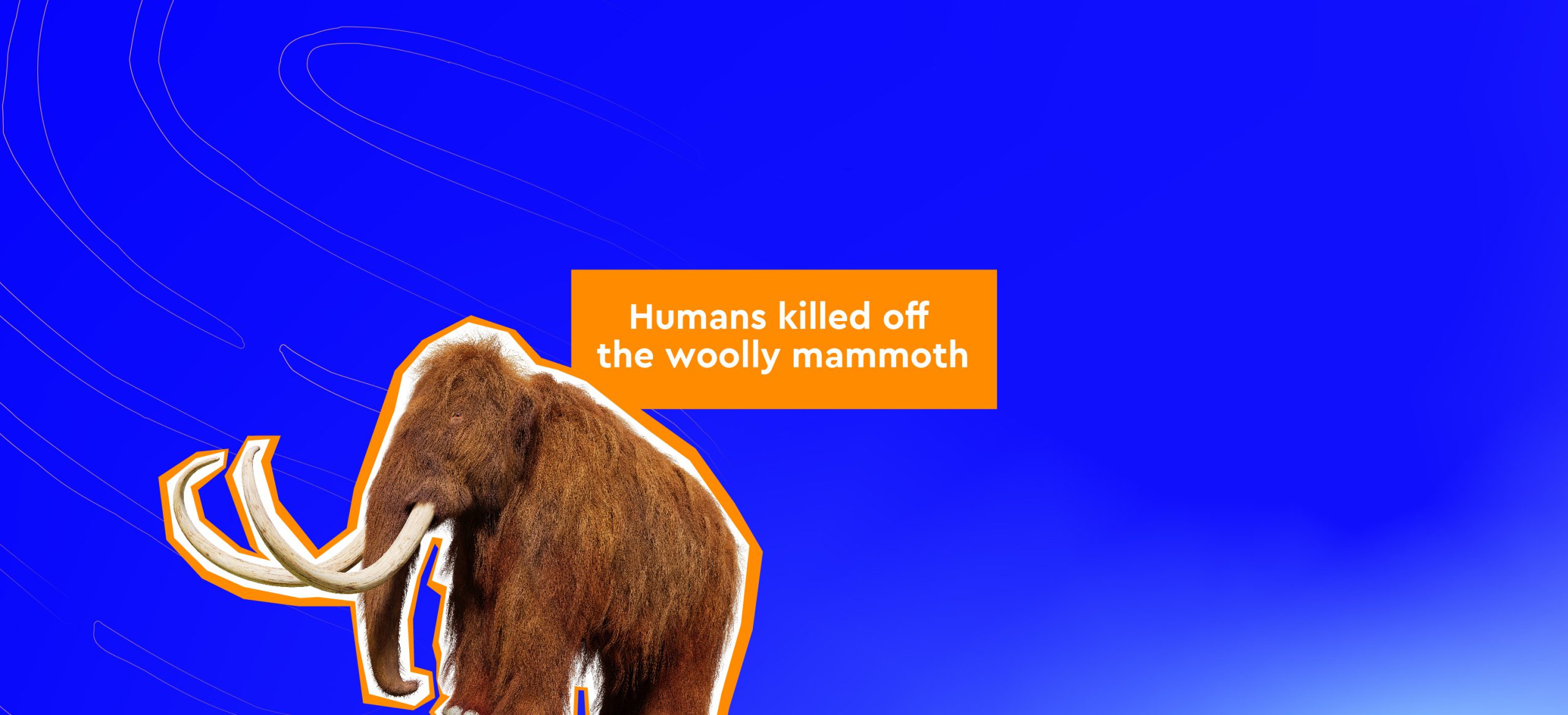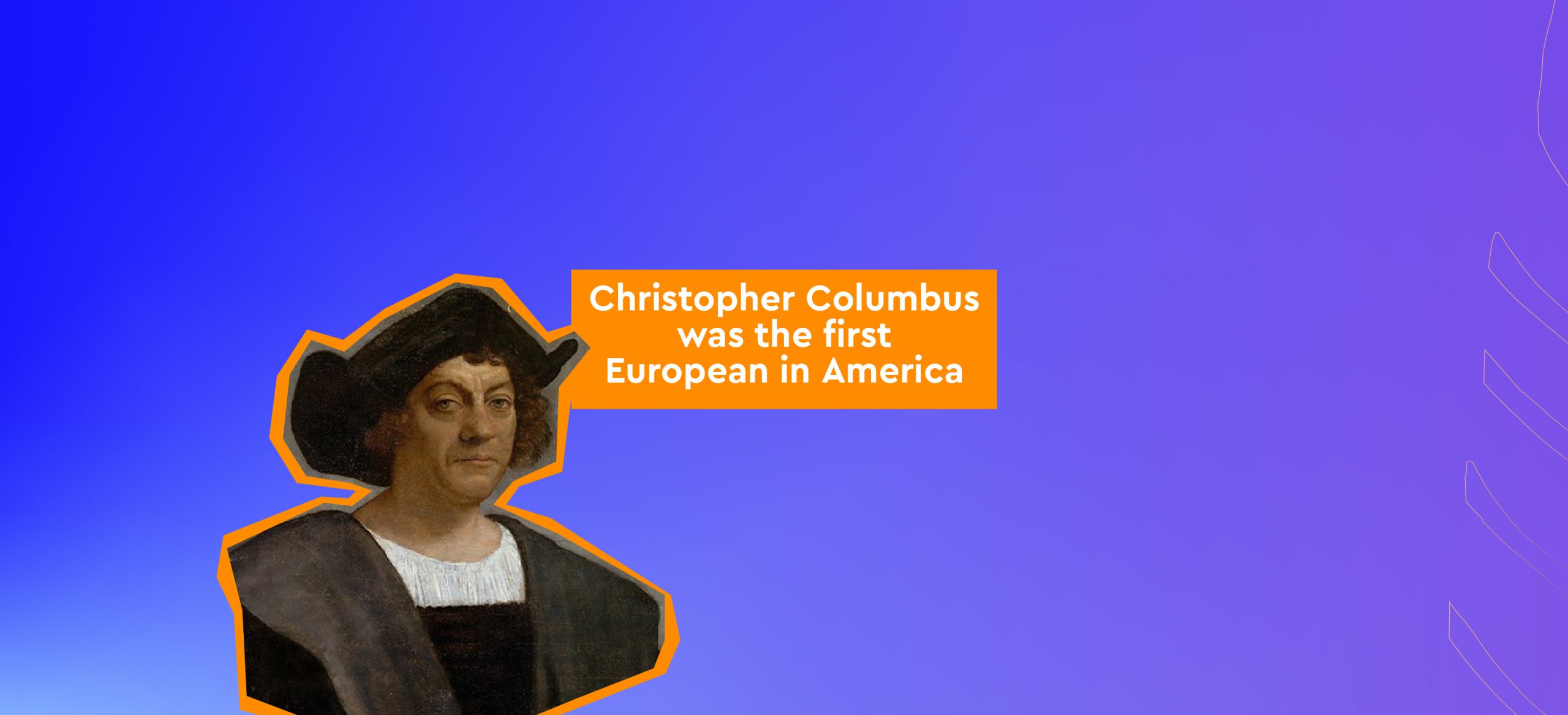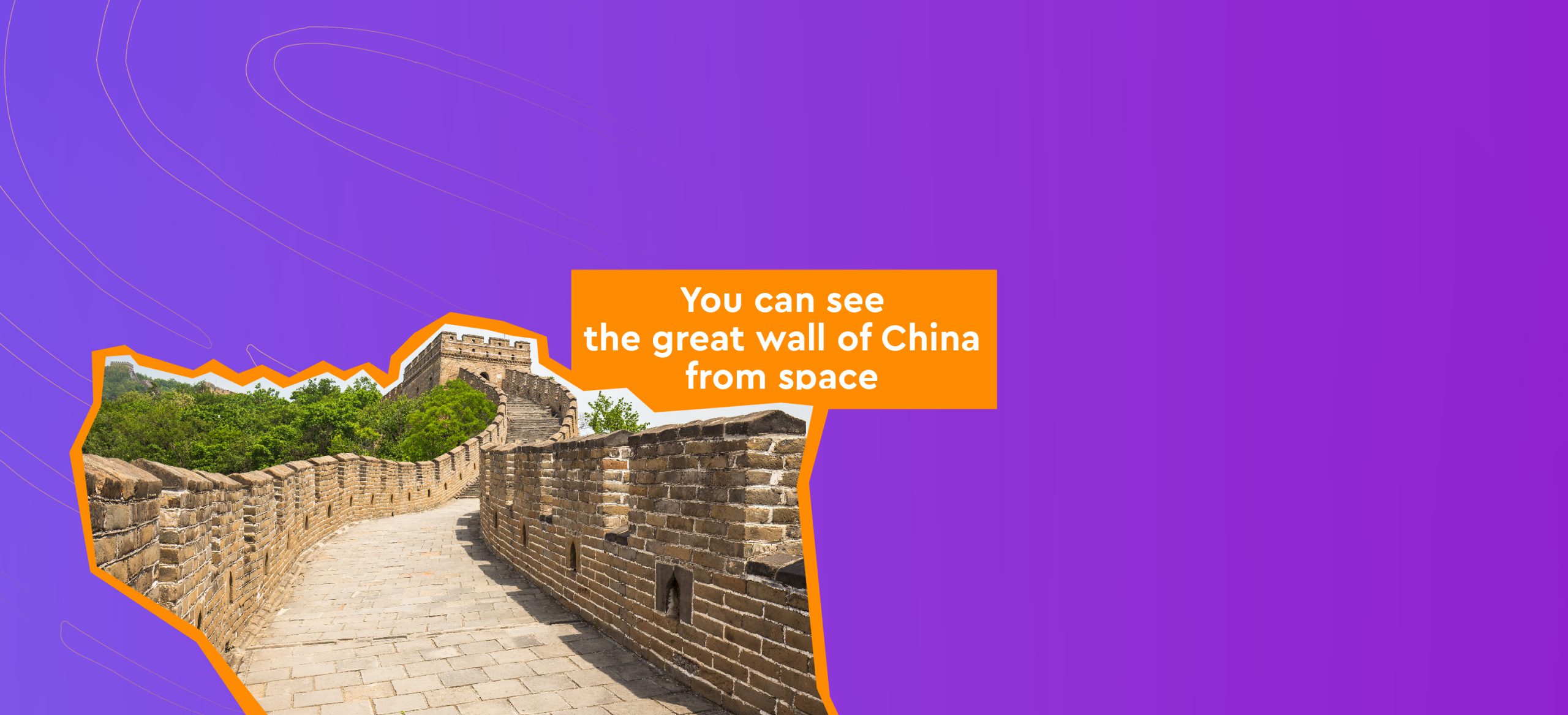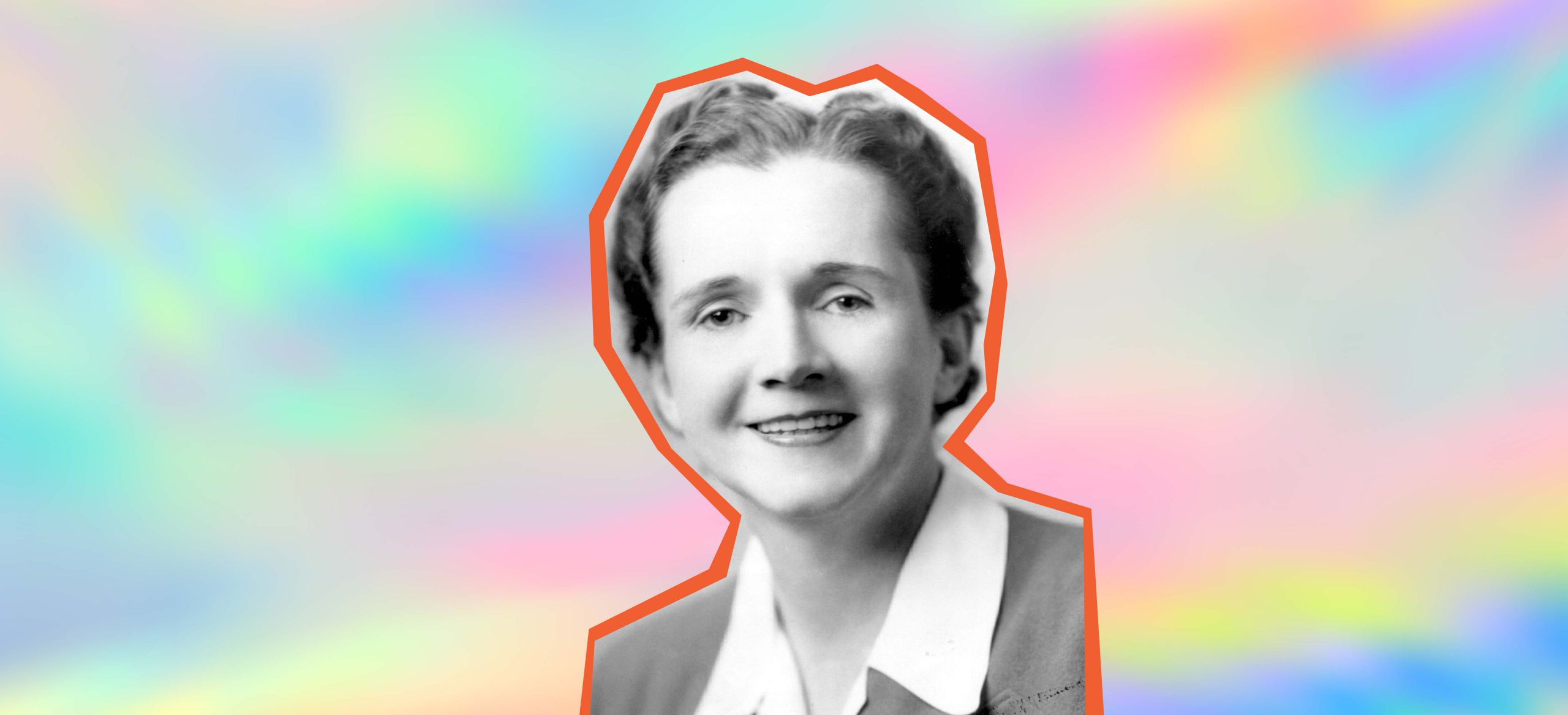

Don’t Believe Things That ‘Everybody Knows’
Don’t Believe Things That ‘Everybody Knows’
Stories often get distorted, true facts get mixed with fiction, new discoveries replace old knowledge, and all-out lies are sometimes taken to be the truth.
You shouldn’t always believe things that ‘everybody knows’.
Everybody knows Columbus discovered America, right? Well, archeologists discovered a Norse settlement in Newfoundland that dates back to around 1000 CE – almost 500 years before Columbus arrived on American shores.
Extinction of the woolly mammoth? Some scientists now claim that humans are not responsible, and it was the climate that killed them off.
Oh, and that common knowledge about the Great Wall of China being visible from space? Well, it’s not.
As for planet Earth not being round – it really isn’t. That’s not to say Earth is flat! Our planet is an oblate spheroid, squashed from the top. Its mass is distributed unevenly within it, and there are many bumps around the globe.
Hope this convinced you that ‘facts’ should never be taken for granted. Stories often get distorted, true facts get mixed with fiction, new discoveries replace old knowledge, and all-out lies are sometimes taken to be the truth. The internet can be a great tool for getting information, but it’s important to remember that there’s no substitute for reliable sources – like peer-reviewed journals and well-established media outlets, which do the boring nitty gritty of fact-checking for us.
Anyway, one sure warning sign is when someone follows their statement with the words ‘everybody knows that’. Because you should always check your facts: everybody knows that. Oh, darn it…
Group Activity
- Divide the group into several teams.
- Pick one of the questions from the list below and let each team discuss it and then present their thoughts to the group; Alternatively, assign each team with a different question, and when they present it to the group ask the remaining teams for their thoughts as well.
Questions
- How can you trust information online? What tools or practices can help us make sure we’re reading or watching accurate information?
- What motivates people to create and spread fake news and false information online? Have you ever created or shared information that you knew was false?
- Can you think of a time when something you believed to be true turned out to be incorrect? How did you find out?
- How does the spread of misinformation on social media differ from other sources of information?
- In what ways can believing false information be harmful to you or others?
- Do you think fake news impact politics? If so, in what way?
- How could AI influence the field of fake news?To delve deeper, give each team an article from the list below (you can assign all of the articles or choose between them). Ask each team to summarize the article’s main argument(s) and present it to the group. Things to note and address: where was the article published (a magazine? A news website? An academic journal?) Who is the author (a columnist? An academic?). Each team can also turn the article’s core argument into a slogan (“AI deletes the I”, “The solution is evolution”, etc.). Ask each team to present their thoughts on the question to the group.
- Article 1: Disinformation reimagined: how AI could erode democracy in the 2024 US elections. The Guardian, July 2023
- Article 2: Will AI-generated images create a new crisis for fact-checkers? Experts are not so sure. Reuters Institute, April 2023
- Article 3: Fakery and confusion: Campaigns brace for explosion of AI in 2024. Politico, June 2023
